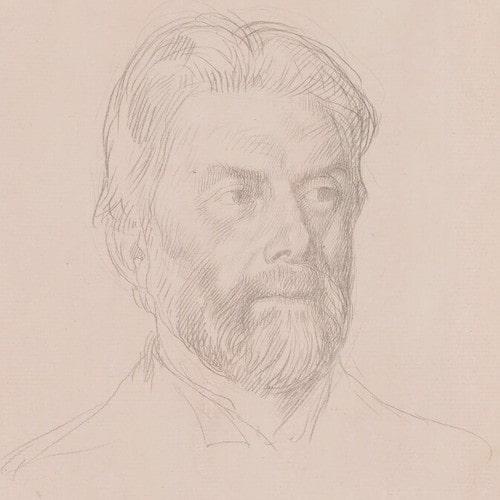Robert Bridges, the poet, gave some ten years of his life to the study and practice of medicine. He was born at Walmer, the fourth son of John Thomas Bridges, landowner, of St. Nicholas Court, Isle of Thanet, and his wife Harriet Elizabeth, daughter of Rev. Sir Robert Affleck, Bart, vicar of Silkstone, Yorkshire. He was educated at Eton and Corpus Christi College, Oxford, and graduated in classics in 1867. After a period of travel, he entered St. Bartholomew’s Hospital as a student in 1871, with the intention, not of devoting his career to medicine, but of enlarging his experience and knowledge. He took the B.M. degree in 1874, and served as house physician to Patrick Black from 1875 to 1876 and as casualty physician from 1877 to 1879, publishing a graphic Account of the Casualty Department in the St. Bartholomew’s Reports (1878). He was elected physician to the Great Northern Hospital in 1876 and assistant physician to the Hospital for Sick Children a year later. But in 1881 an attack of pneumonia, which required a prolonged convalescence, brought his medical career to an end, three years earlier than he had expected to retire. The rest of his life was given to the poetry which made his name famous. Medicine had, indeed, delayed Robert Bridges’ emergence as a poet, but it cannot be gainsaid that the result was fruitful. He acquired through medicine a sympathetic insight into his fellow men and an experience that was not without influence on the last, and perhaps the greatest, of his works, The Testament of Beauty (1929).
Robert Bridges married in 1884 Monica, daughter of Alfred Waterhouse, R.A, of Yattendon, Berkshire, where he was then living, and had a son and two daughters. He died at Boars Hill, Oxford, in Chilswell House, which he had built in 1907. He had been poet laureate since 1913, and had received the Order of Merit in 1929.
G H Brown
[B.M.J., 1930; D.N.B., 1922-30, 115; Presidential Address to R.C.P., 1931, 7; Al.Oxon., i, 159]

